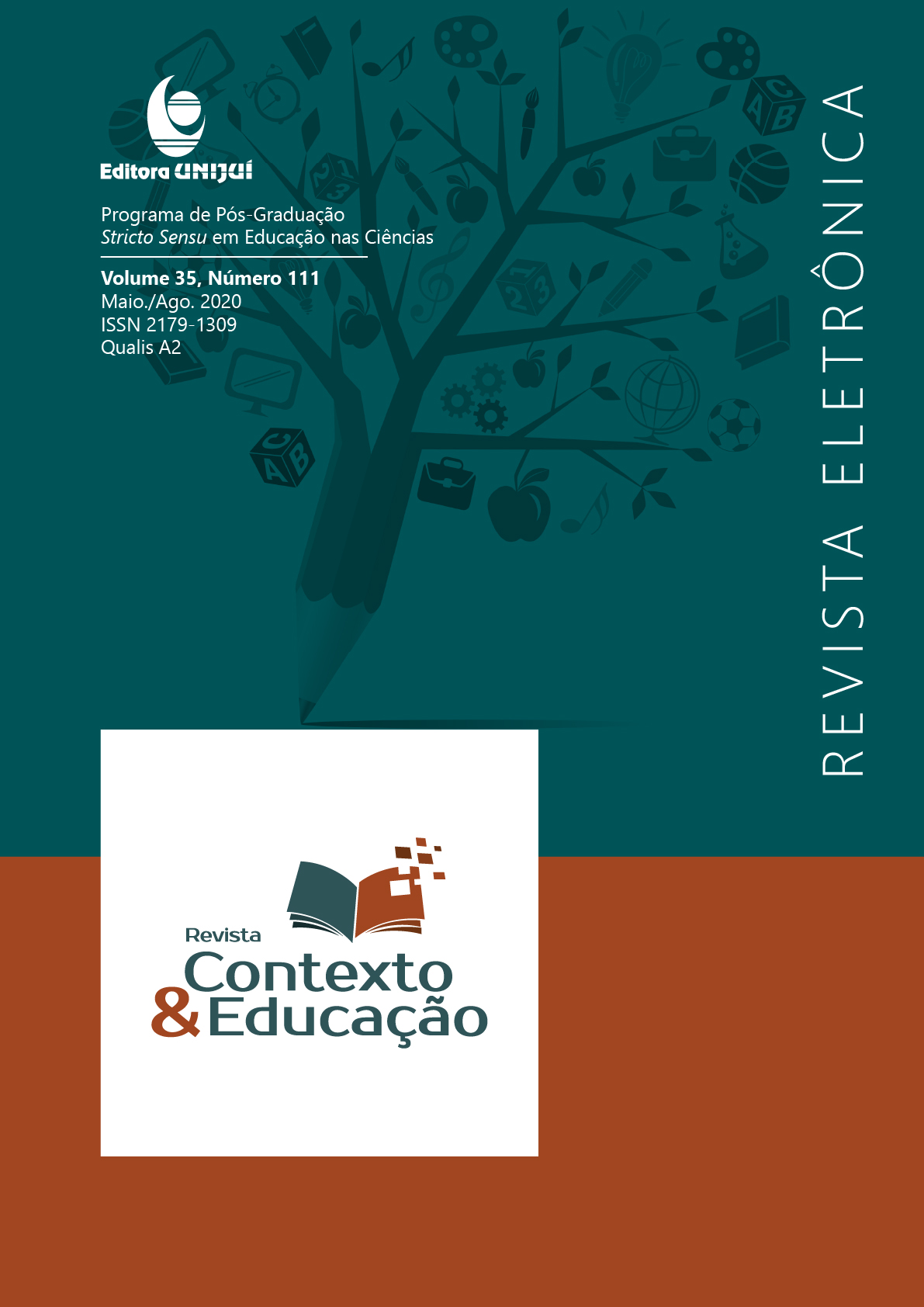O EXPERIMENTO DIDÁTICO FORMATIVO E SUAS CONTRIBUIÇÕES RELATIVAS AO PROCESSO DE APROPRIAÇÃO/OBJETIVAÇÃO DA ABORDAGEM DE QUESTÕES SOCIOCIENTÍFICAS POR PROFESSORES DE CIÊNCIAS
DOI:
https://doi.org/10.21527/2179-1309.2020.111.287-305Abstract
Neste estudo temos os objetivos de analisar o desenvolvimento de um experimento didático formativo (EDF) e identificar suas contribuições, enquanto método de investigação e método de ensino, relativas ao processo de apropriação/objetivação da Abordagem de Questões Sociocientíficas (AQSC) por professores de ciências. O EDF analisado neste estudo foi desenvolvido em uma pesquisa anterior realizada em uma disciplina de curso de mestrado de uma IES brasileira, com a participação de sete professores de ciências que cursavam esta disciplina no segundo semestre letivo de 2016. Seguindo uma abordagem qualitativa dos dados, consideramos como categorias analíticas do EDF a etapa de planejamento, a etapa de execução e a etapa de análise. A partir dos resultados das análises, podemos constatar que o EDF foi composto por etapas e subetapas coerentes com alguns pressupostos teóricos e metodológicos da teoria histórico-cultural, mais especificamente da teoria da atividade. Adicionalmente, algumas contribuições do EDF, enquanto método de investigação e método de ensino, relativas ao processo de apropriação/objetivação da Abordagem de Questões Sociocientíficas (AQSC) por professores de ciências foram identificadas, como, por exemplo, a revisão da literatura dos conceitos envolvidos na AQSC, objetos de apropriação/objetivação dos professores, e dos pressupostos da teoria histórico-cultural que deram subídios teóricos e metodológicos à pesquisa e a proposição de tarefas que podem ter exigido dificuldades a serem superadas pelos professores.
Downloads
Published
How to Cite
Issue
Section
License
By publishing in Revista Contexto & Educação, authors agree to the following terms:
All works are published under the Creative Commons Attribution 4.0 International License (CC BY 4.0), which allows:
Sharing — to copy and redistribute the material in any medium or format;
Adaptation — to remix, transform, and build upon the material for any purpose, even commercially.
These permissions are irrevocable, provided that the following terms are respected:
Attribution — authors must be properly credited, a link to the license must be provided, and any changes made must be indicated.
No additional restrictions — no legal or technological measures may be applied that legally restrict others from doing anything the license permits.
Notices:
The license does not apply to elements that are in the public domain or covered by legal exceptions.
The license does not grant all necessary rights for specific uses (e.g., image rights, privacy, or moral rights).
The journal is not responsible for the opinions expressed in the articles, which are the sole responsibility of the authors. The Editor, with the support of the Editorial Board, reserves the right to suggest or request modifications when necessary.
Only original scientific articles presenting research results of interest that have not been previously published or simultaneously submitted to another journal with the same purpose will be accepted.
Mentions of trademarks or specific products are intended solely for identification purposes and do not imply any promotional relationship by the authors or the journal.
License Agreement (for articles published from October 2025): Authors retain the copyright to their article and grant Revista Contexto & Educação the right of first publication.


